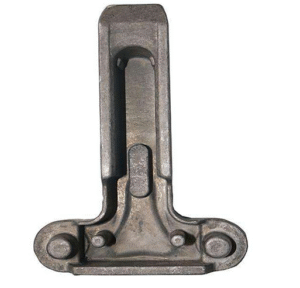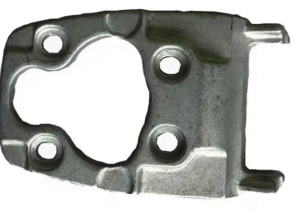ASTM Forging Standards
Demystifying ASTM Forging Standards: A Comprehensive Guide
In the world of industrial manufacturing, quality, consistency, and reliability are non-negotiable. For forged components, these attributes are defined and guaranteed by a robust set of guidelines known as the ASTM Forging Standards. But what exactly are these standards, and why are they critical for your projects?
This guide will break down everything you need to know about ASTM Forging Standards, from their fundamental principles to their practical application.

What are ASTM Forging Standards?
ASTM Forging Standards are a collection of technical specifications developed by ASTM International (formerly known as the American Society for Testing and Materials). They provide a common language and a set of rigorous requirements for the chemical, mechanical, and dimensional properties of forged metal parts.
Think of them as a universal quality assurance blueprint. By adhering to these standards, manufacturers, engineers, and end-users ensure that forged components perform predictably under stress, in corrosive environments, and at extreme temperatures. This is crucial for safety-critical applications in aerospace, automotive, oil & gas, and heavy machinery.

Key Requirements of ASTM Forging Standards
ASTM standards are comprehensive and cover every stage of the forging process. Key requirements typically include:
Material Chemistry: Standards specify the precise chemical composition (e.g., percentages of carbon, chromium, nickel) of the raw material (billet, bar, or ingot). This ensures the base metal has the inherent properties needed for the final part.
*Common Standards: ASTM A182 (forged pipe fittings for high-temperature service), ASTM A266 (forged carbon steel components for pressure vessels).*
Mechanical Properties: These are the “performance metrics” of the forged part. Standards mandate minimum values for:
Tensile Strength: Resistance to being pulled apart.
Yield Strength: Stress at which it begins to deform permanently.
Elongation & Reduction of Area: Measures of ductility.
Impact Toughness: Ability to absorb energy and resist fracture.
Common Standards: ASTM A370 (standard test methods for mechanical testing).
Heat Treatment: Standards define the specific thermal cycles (such as annealing, normalizing, quenching, and tempering) required to achieve the desired mechanical properties and microstructural characteristics.
Dimensional Inspection: The forged part must conform to specified dimensions and tolerances. This is verified through precise measurement techniques.
Non-Destructive Testing (NDT): To ensure internal and surface integrity without damaging the part, standards often require NDT methods like:
Liquid Penetrant Testing (PT): For surface defects.
Magnetic Particle Testing (MT): For surface and near-surface defects in ferromagnetic materials.
Ultrasonic Testing (UT): For internal flaws.
Common Standards: ASTM E165 (for liquid penetrant), ASTM E709 (for magnetic particles).
Quality Assurance & Certification: Manufacturers must maintain detailed records of the entire production process. A certified Material Test Report (MTR) is provided, tracing the part from its raw material to its final state, verifying compliance with the standard.
Suitable Materials and Closed-Die Forging Processes
ASTM Forging Standards are versatile and cover a wide range of materials suitable for the closed-die forging process, which is ideal for producing high-strength, complex near-net-shape components.
Common material grades governed by ASTM standards include:
Carbon and Alloy Steels: (e.g., ASTM A105, A266 Grades 1-4, A694) – Used for high-strength structural parts, flanges, and fittings.
Stainless Steels: (e.g., ASTM A182 F304/F304L, F316/F316L) – Chosen for their excellent corrosion resistance.
Duplex & Super Duplex Stainless Steels: (e.g., ASTM A182 F51, F55) – For superior strength and corrosion resistance in aggressive environments.
Nickel-Based Alloys: (e.g., ASTM B564 Alloy 625, Alloy 718) – For extreme temperature and corrosion applications in aerospace and chemical processing.
The closed-die forging process is perfectly suited for these materials as it refines the grain structure, aligns the grain flow to the part’s shape, and eliminates intern
Suitable Materials and Closed-Die Forging Processes
ASTM Forging Standards are versatile and cover a wide range of materials suitable for the closed-die forging process, which is ideal for producing high-strength, complex near-net-shape components.
Common material grades governed by ASTM standards include:
Carbon and Alloy Steels: (e.g., ASTM A105, A266 Grades 1-4, A694) – Used for high-strength structural parts, flanges, and fittings.
Stainless Steels: (e.g., ASTM A182 F304/F304L, F316/F316L) – Chosen for their excellent corrosion resistance.
Duplex & Super Duplex Stainless Steels: (e.g., ASTM A182 F51, F55) – For superior strength and corrosion resistance in aggressive environments.
Nickel-Based Alloys: (e.g., ASTM B564 Alloy 625, Alloy 718) – For extreme temperature and corrosion applications in aerospace and chemical processing.
The closed-die forging process is perfectly suited for these materials as it refines the grain structure, aligns the grain flow to the part’s shape, and eliminates internal voids, resulting in superior mechanical properties that meet or exceed ASTM requirements.
We Forge to Your Exact Requirements
While ASTM standards provide the foundational benchmark for quality, we understand that every project is unique. Our capability goes beyond standard grades.
We specialize in custom closed-die forging based on your specific requirements.
Whether you need a component that meets a standard ASTM specification like A182 F91 or a proprietary material grade with special chemical or mechanical properties, our engineering team can deliver.
Our process is simple:
You provide your part drawing and technical specifications.
Our experts analyze the requirements and recommend the optimal material (standard or custom) and forging process.
We execute the project with strict adherence to all relevant ASTM Forging Standards and quality control protocols.
You receive a certified, high-performance forged component that fits your application perfectly.
Ready to leverage the strength and reliability of ASTM-standard forgings for your next project? Contact us today for a consultation and quote. Let us forge your success.
